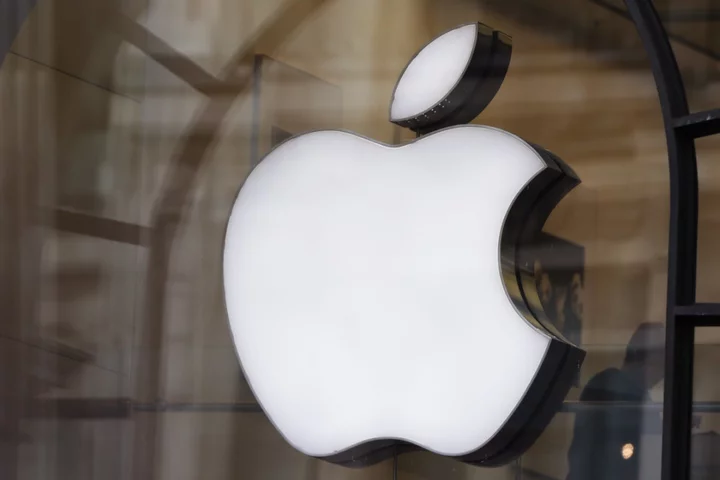
Setback for Ireland as EU legal adviser recommends revisit of Apple tax case
A legal expert at Europe’s top court has said a lower court committed “errors in law” when it threw out a decision by the European Commission which would force Apple to pay more than 13 billion euro in back taxes to Ireland. The non-binding opinion is seen as a significant setback to Ireland’s defence of its past tax treatment of the US technology giant. In 2016, following an EU investigation which launched in 2014, the commission concluded that Ireland gave undue tax benefits to Apple, which would be illegal under EU state aid rules. Ireland and Apple fought the commission on the matter and in July 2020, the General Court of the European Union annulled the decision. However, the European Commission subsequently appealed against the decision to the European Court of Justice (CJEU) saying the lower court’s ruling was legally incorrect. On Thursday, Giovanni Pitruzzella, an advocate general at the CJEU, agreed that the earlier ruling had contained “a series of errors in law”. He said the judgment should be set aside and referred the case back to the General Court for a new decision. While the opinion of the advocate general is non-binding, it is usually followed by the court and therefore could have significant implications for corporation tax bills. There was no sweetheart deal Finance Minister Michael McGrath The commission’s original position was that that tax rulings issued by Ireland to Apple in 1991 and 2007 substantially and artificially lowered the tax paid by the iPhone manufacturer in the country since the early 90s, in a way which did not correspond to economic reality. As a result, competition commissioner Margrethe Vestager said Ireland had granted illegal tax benefits which enabled it to pay substantially less tax than other business over many years. The investigation found that Apple had paid an effective corporate tax rate of 1% on its European profits in 2003, down to 0.005% in 2014, 50 euro for every one million euro of profit. The process involved recording almost all sales profits of two Irish incorporated companies, which the commission said only existed on paper. The companies, fully owned by Apple, held the rights to use the firm’s intellectual property to manufacture and sell its products outside North and South America. The commission said this situation allowed Apple to avoid taxation on almost all profits generated by sales of its products in the entire EU single market. It said this was due to Apple’s decision to record all sales in Ireland rather than in the countries where the products were sold. The findings were disputed by the Irish State, which said all tax owed had been collected, and Apple, which had come under scrutiny in the US for its tax practices years earlier. At the time, Apple’s chief executive, Tim Cook, branded the EU findings as “political crap”, maddening and untrue. The Irish Government, which was also used to defending a comparatively low 12.5% corporation tax rate, said Europe had overstepped the mark in attempting to dictate tax laws and enforce retrospective taxes decades later. Ireland and Apple fought the commission on the matter and in July 2020, the General Court of the European Union annulled the decision. The General Court found that the commission had not shown that there was an advantage deriving from the adoption of the tax rulings. However, the commission subsequently appealed the decision to the European Court of Justice with Ms Vestager saying the lower court’s ruling contained errors of law. On Thursday, the advocate general agreed the General Court had erred when it ruled that the Commission had not shown to the requisite legal standard that the intellectual property licences held by the two incorporated companies and related profits, generated by the sales of Apple products outside the US, had to be attributed for tax purposes to the Irish branches. The advocate general was of the view that the General Court also failed to assess correctly the substance and consequences of certain methodological errors that, according to the Commission decision, “vitiated the tax rulings”. It is the non-binding opinion of Mr Pitruzzella that it is necessary for the General Court to carry out a new assessment. The decision of the CJEU on the matter is expected next year and will have significant implications for how member states grant tax breaks to major firms. Apple has argued it has been paying tax on the profits in question in the US, while Ireland has seen it necessary to defend its reputation on taxation issues to protect foreign direct investment. Last weekend, Finance Minister Michael McGrath had said the advocate general’s opinion would be “significant” but added it is not the final step in the process. Mr McGrath said: “We are confident in our position in respect of the Apple case. “We take encouragement from the findings they have made so far, but it is a significant day.” He added: “There was no sweetheart deal. “This was the application of Ireland’s statutory corporation tax code.” In the interim, the 13.1 billion euro has been held in an escrow fund pending the outcome of the case. The money, with interest, is due to be entered into the Irish exchequer if the commission wins the case. However, other member states may make claims that they are owed some of the money. If the commission loses the appeal, the large sum will be returned to Apple. Read More Smartphones ‘may be able to detect how drunk a person is with 98% accuracy’ Ireland and Apple await major development in long-running EU tax dispute Guidance urges parents not to buy smartphones for primary school children William ‘blown away’ by futuristic technology from Singapore start-ups Return of original Fortnite map causes record traffic on Virgin Media O2 network NatWest creates new AI-powered chatbot capable of ‘human-like’ conversations
2023-11-09 18:22

Sony Raises Outlook Yet Sounds Cautious Note on PS5 Holiday Goal
Sony Group Corp. raised its full-year outlook for sales and profit after its media divisions outperformed, yet warned
2023-11-09 16:54
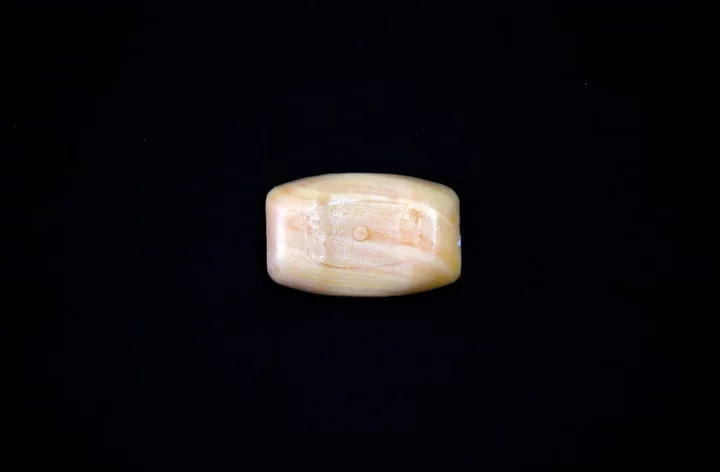
Soap may be key for longer-lasting batteries, study finds
The key to longer-lasting batteries may lie in soap, according to a new study. Scientists have developed a new promising substance used for designing batteries. They said it acts in a manner similar to soap removing grease, dirt and germs. Localised high-concentration electrolytes could be the “missing piece” that fully open the door to building longer-lasting batteries, said a recent study published in the journal Nature Materials. The key to longer-lasting batteries may lie in understanding how soap gets rid of dirt. It forms tiny structures called micelles that act as a bridge between water and what is being cleaned away by wrapping them into small structures. Scientists from Brown University said a similar process plays out in localised high-concentration electrolytes – described as one of the most promising substances for designing batteries. Electrolytes are key in the energy-storing process as they allow an electrical charge to pass between a battery’s two terminals. This sparks the chemical reaction needed to convert stored chemical energy to electricity. Batteries made from lithium metal have a greater energy storage capacity than today’s lithium-ion batteries. But the electrolytes commonly used to power lithium-ion batteries don’t do this effectively in metal-based batteries, researchers explained. “The big picture is that we want to improve and increase the energy density for batteries, meaning how much energy they store per cycle and how many cycles the battery lasts,” said study co-author Yue Qi from Brown University. “To do this, materials inside of traditional batteries need to be replaced to make long-life batteries that store more energy a reality – think batteries that can power a phone for a week or more, or electric vehicles that go for 500 miles,” Dr Qi said. Electrolytes for lithium-ion batteries are made of low-concentration salt dissolved in a liquid solvent. The new type of electrolytes, however, are created by mixing high concentrations of salt in a solvent with another liquid called a diluent. Scientists said this makes the electrolyte flow better so the power of the battery can be maintained. They also found the electrolyte functions like soap. “The paper provides a unified theory to why this electrolyte works better and the key understanding of it came by finding that micelle-like structures form within this electrolyte – like they do with soap,” said study co-author Bin Li from the Oak Ridge National Laboratory. “Here we see that the role of the soap or surfactant is played by the solvent that binds both the diluent and the salt,” Dr Li explained, “wrapping itself around the higher concentration salt in the center of the micelle”. While in lab tests, this type of electrolyte has shown promising results, how it works has remained elusive. This has put a cap on how effective it can be and how it can be further developed. The new understanding has, however, helped scientists develop the right concentrations needed to bring about optimal reactions for the batteries. “The concept of the micelle may be new for the electrolyte, but it’s actually very common for our daily life,” Dr Qi said. “Now we have a theory, and we have guidelines to get interactions we want from the salt, the solvent and the diluent in the electrolyte, and what concentration they have to be at and how you mix them.” Researchers said this new understanding could lead to introducing a proper balance of the three battery ingredients and also help extend the life of lithium-metal batteries. Read More Ireland and Apple await major development in long-running EU tax dispute Apple just released an iPhone update you should download right now Smartphones ‘may be able to detect how drunk a person is with 98% accuracy’ Ireland and Apple await major development in long-running EU tax dispute Apple just released an iPhone update you should download right now Smartphones ‘may be able to detect how drunk a person is with 98% accuracy’
2023-11-09 15:53
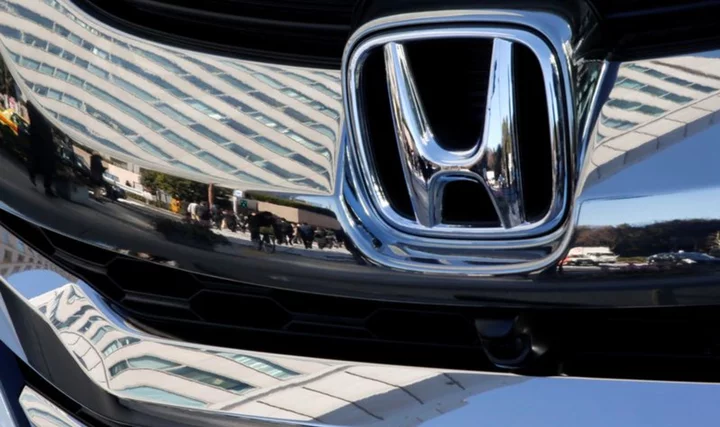
Honda posts 31% Q2 operating profit jump, raises full-year forecast
TOKYO (Reuters) -Japan's Honda Motor posted a 31% increase in operating profit for the September quarter on Thursday, lifted by
2023-11-09 14:56
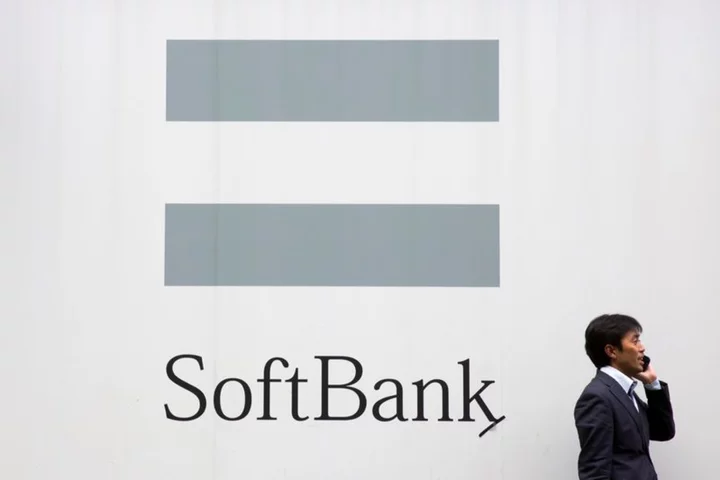
SoftBank books $5.2 billion quarterly loss as investments and weak yen bite
TOKYO (Reuters) -SoftBank Group on Thursday booked 789 billion yen ($5.22 billion) loss, marking its fourth straight quarter in the
2023-11-09 14:51
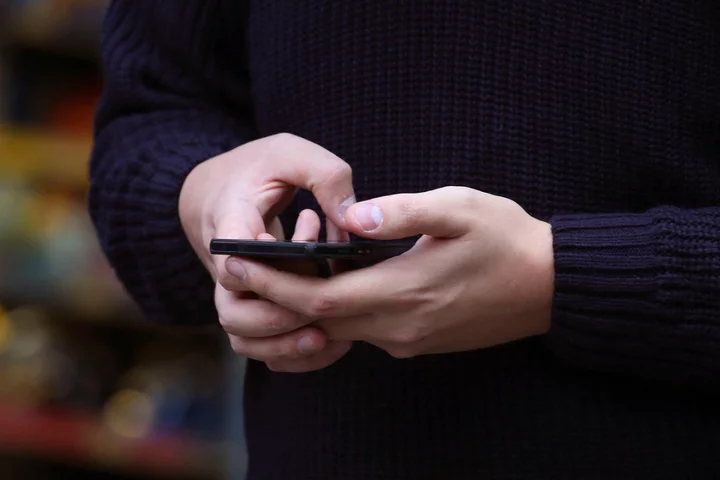
Smartphones ‘may be able to detect how drunk a person is with 98% accuracy’
Sensors in smartphones may be able to detect how drunk a person is based on changes in their voice, according to a small study. Following experiments involving 18 adults aged 21 and above, scientists said they were able to predict a person’s level of intoxication with 98% accuracy based on an analysis of their voice patterns. Brian Suffoletto, an associate professor of emergency medicine at Stanford University in the US, said the accuracy of the findings of his research “genuinely took me by surprise”. He added: “While we aren’t pioneers in highlighting the changes in speech characteristics during alcohol intoxication, I firmly believe our superior accuracy stems from our application of cutting-edge advancements in signal processing, acoustic analysis, and machine learning.” While Prof Suffoletto said larger studies are needed to confirm the validity of the findings, he added his work has the potential to deliver “just-in-time interventions” to prevent alcohol-related road injuries and deaths in the future. Prof Suffoletto said: “Imagine if we had a tool capable of passively sampling data from an individual as they went about their daily routines and survey for changes that could indicate a drinking episode to know when they need help.” Imagine if we had a tool capable of passively sampling data from an individual as they went about their daily routines and survey for changes that could indicate a drinking episode to know when they need help Prof Brian Suffoletto For the research, published in the Journal of Studies on Alcohol and Drugs, the scientists tailored alcohol doses based on the body weight of each person taking part and were given an hour to finish their drink. Each individual was randomly given a series of tongue twisters to read out loud and a smartphone was used to record their voices. Recordings were made before drinking, and each hour up to seven hours after drinking. The researchers also measured each person’s breath alcohol levels at the beginning of the study and every 30 minutes for up to seven hours. Using digital programmes, the researchers were able isolate the speaker’s voices and analyse measures such as frequency and pitch in one-second increments. When checked against breath alcohol results, the researchers found that the model they developed was a good predictor of how drunk a person was – with 98% accuracy. Prof Suffoletto believes that other behaviours such as gait and texting could be combined with voice pattern sensors to gauge intoxication levels. He said: “Timing is paramount when targeting the optimal moment for receptivity and the relevance of real-time support. “For instance, as someone initiates drinking, a reminder of their consumption limits can be impactful. “However, once they’re significantly intoxicated, the efficacy of such interventions diminishes.” Read More Ireland and Apple await major development in long-running EU tax dispute Guidance urges parents not to buy smartphones for primary school children William ‘blown away’ by futuristic technology from Singapore start-ups Return of original Fortnite map causes record traffic on Virgin Media O2 network NatWest creates new AI-powered chatbot capable of ‘human-like’ conversations Succession star Sarah Snook says AI use in film industry needs ‘stringent rules’
2023-11-09 14:21
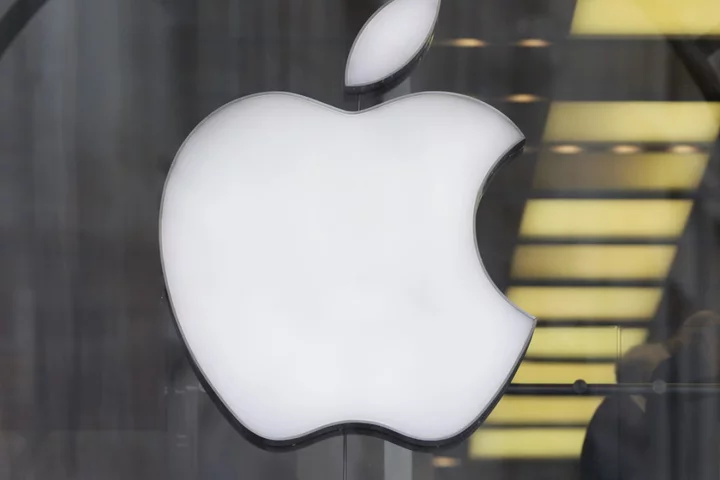
Ireland and Apple await major development in long-running EU tax dispute
EU lawmakers are awaiting an announcement which is seen as major step in the drawn-out dispute over tax arrangements between technology giant Apple and Ireland. The advocate general at the European Court of Justice is to issue an opinion on Friday morning about whether Apple will be forced to pay more than 13 billion euro in back taxes to Ireland. While the opinion of the advocate general is non-binding, it is usually followed by the court and therefore could have significant implications for corporation tax bills. Ireland had fought the European Commission over the matter due to concerns over an intrusion on Irish sovereignty and potential impacts to investment in the country. There was no sweetheart deal Finance Minister Michael McGrath In 2016, following an EU investigation which launched in 2014, the commission concluded that Ireland gave undue tax benefits of 13.1 billion euro to Apple, which is illegal under EU state aid rules. The commission said that tax rulings issued by Ireland to Apple in 1991 and 1997 substantially and artificially lowered the tax paid by the iPhone manufacturer in the country since 1991, in a way which did not correspond to economic reality. As a result, competition commissioner Margrethe Vestager said Ireland had granted illegal tax benefits which enabled it to pay substantially less tax than other business over many years. The investigation found that Apple had paid an effective corporate tax rate of 1% on its European profits in 2003, down to 0.005% in 2014 – 50 euro for every one million euro of profit. The process involved recording almost all sales profits of two Irish incorporated companies, which the commission said only existed on paper. The companies, fully owned by Apple, held the rights to use the firm’s intellectual property to manufacture and sell its products outside North and South America. The commission said this situation allowed Apple to avoid taxation on almost all profits generated by sales of its products in the entire EU single market. It said this was due to Apple’s decision to record all sales in Ireland rather than in the countries where the products were sold. The findings were disputed by the Irish State – which said all tax owed had been collected – and Apple, which had come under scrutiny in the US for its tax practices years earlier. At the time, Apple’s chief executive, Tim Cook, branded the EU findings as “political crap”, maddening and untrue. The Irish Government, which was also used to defending a comparatively low 12.5% corporation tax rate, said Europe had overstepped the mark in attempting to dictate tax laws and enforce retrospective taxes decades later. Ireland and Apple fought the commission on the matter and in July 2020, the General Court of the European Union annulled the decision. However, the commission subsequently appealed the decision to the European Court of Justice with Ms Vestager saying the lower court’s ruling contained “errors of law”. The European Court of Justice’s advocate general is to give a legal opinion on the dispute ahead of the court’s final decision. That decision is expected next year and will have significant implications for how member states grant tax breaks to major firms. Apple has argued it has been paying tax on the profits in question in the US, while Ireland has seen it necessary to defend its reputation on taxation issues to protect foreign direct investment. Last weekend, Finance Minister Michael McGrath said the advocate general’s opinion will be “significant” but added it is not the final step in the process. Mr McGrath said: “We are confident in our position in respect of the Apple case. We take encouragement from the findings they have made so far, but it is a significant day.” He added: “There was no sweetheart deal. This was the application of Ireland’s statutory corporation tax code.” In the interim, the 13.1 billion euro has been held in an escrow fund pending the outcome of the case. The money, with interest, is due to be entered into the Irish exchequer if the commission wins the case. However, other member states may make claims that they are owed some of the money. If the commission loses the appeal, the large sum will be returned to Apple.
2023-11-09 11:18
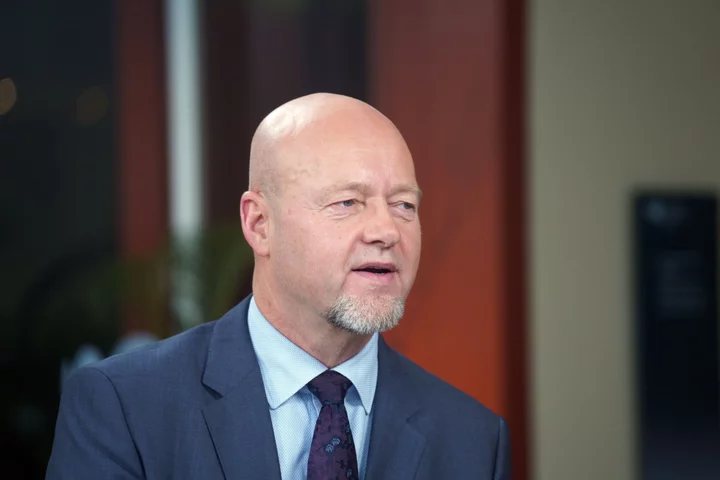
NEF Latest: Ken Griffin Warns on US Spending as Clinton to Speak
Citadel founder Ken Griffin called for the US to rein in excess spending and warned the country could
2023-11-09 10:57
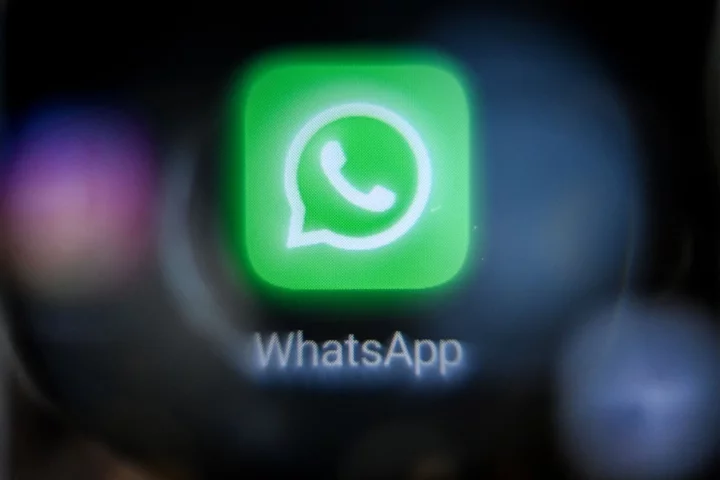
WhatsApp update stops hackers being able to find your phone by calling it
A new WhatsApp feature could stop people from being found through phone calls, the company has said. The tool, named “Protect IP Address in Calls”, is aimed at letting people ensure that they do not give away unwanted information to the people who call them up. At the moment, WhatsApp calls are made in one of two ways: peer-to-peer or through WhatsApp’s servers. The new setting allows users to choose between them to ensure that they are able to keep information private. Peer-to-peer calling works as it sounds: the two phones are directly in contact. That usually allows for better call quality, but means that the two phones need to know each other’s IP address. If calls are instead relayed through WhatsApp’s servers, it means that the IP address can be kept secret. That address could potentially be useful to hackers or other malicious cyber criminals, since it can be used to work out a person’s general location or their internet provider. Now users can choose to use the new feature and always have their calls sent through WhatsApp’s servers and protect their IP address. WhatsApp cannot intercept those calls even when they go through its servers since they are end-to-end encrypted. WhatsApp stressed that the new feature is aimed at their “most privacy-conscious users”. It may lead to less fast connections and lower quality calls, for instance. The new update follows another, released over summer, which WhatsApp refers to as “Silence Unknown Calls”. That stops phone calls from unknown numbers from even getting through to your phone – which means that it will not only limit spam and other annoying calls, but will also keep people cyber attacks, WhatsApp said. Read More Apple just released an iPhone update you should download right now Nasa gets ‘puzzling’ data back from spacecraft exploring distant object Scientists invent mind-reading device
2023-11-09 03:22
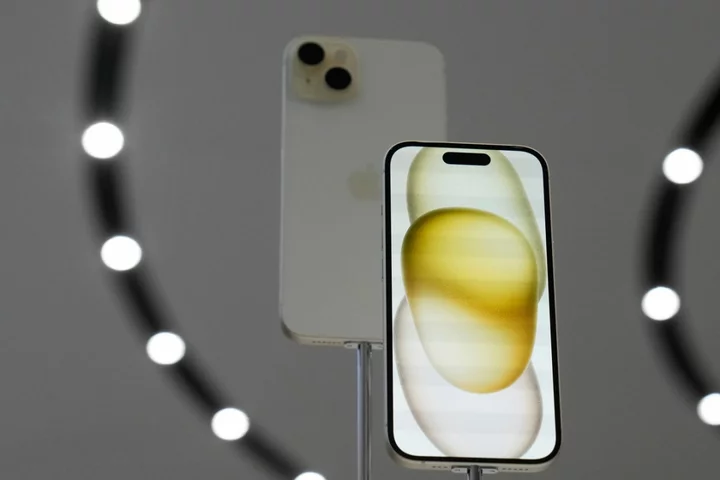
iOS 17.1.1: Apple releases new iPhone update to let phones charge in cars without breaking
Apple has released a new iPhone update that ensures they won’t break when being charged in the car. The iOS 17.1.1 update includes a range of bug fixes for some unusual and high-profile issues with Apple’s new iPhones. It is available to download now as usual. When the iPhone 15 was released, some users of specific cars – particularly those made by BMW and Toyota – reported that charging their phones in the car would break them. In some cases, when people used the built-in wireless charging then Apple Pay would stop working, for instance. That is now fixed in the new update, according to Apple’s release notes. It fixes an issue where “In rare circumstances, Apple Pay and other NFC features may become unavailable on iPhone 15 models after wireless charging in certain cars”, it says. The new operating system update also fixes an issue where “Weather Lock Screen widget may not correctly display snow”, the release notes say. That refers to a problem where users would instead see a file icon, which had been widely reported. Apple has also released an update for the Watch, numbered 10.1.1. That fixes another prominent issue that led to unexpected battery drain on the Watch, with some reporting that their devices lost all their charge in just a few hours. The Mac and HomePod also have their own bug updates. They can all be installed as usual: through the Settings app on the iPhone or Mac, or through the devoted apps for the Watch and HomePod, though all devices should eventually prompt the user to update automatically. The update came after a Bloomberg report that indicated Apple had taken some engineers off work on upcoming major updates to ensure that the current operating system versions were as free of bugs as possible. Recent weeks have seen a range of unexpected bugs in Apple software, including widespread reports that the iPhone 15 would get uncomfortably hot, which was later fixed with another software update. Read More The Apple Watch has a major issue but Apple is working on a fix Something is happening with Apple’s Mac and iPads Apple just revealed a new MacBook Pro – with a new colour
2023-11-09 02:45
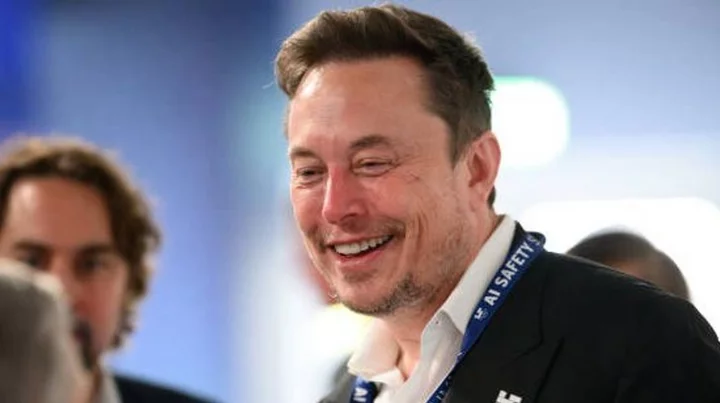
Elon Musk wants a volunteer to have their head cut open for his brain implants
Elon Musk's chip implant company Neuralink is looking for its first volunteer since the company got approved to perform tests on humans by the FDA. Prior to its approval for human clinical trials, Reuters reported that the company had killed roughly 1,500 animals during testing. The volunteer would have to be willing to have a piece of their skull removed so a robotic surgeon can insert thin wires and electrodes into their brain. The company told Bloomberg News, the ideal candidate will be a quadriplegic under the age of 40. Neuralink hopes to eventually make a device that will allow people to send messages or play games using only their thoughts. Ashlee Vance, the author of the 2015 biography 'Elon Musk: Tesla, SpaceX, and the Quest for a Fantastic Future', said in his Bloomberg report that despite "an outpouring of interest from thousands of prospective patients," the company is still seeking its first volunteer. The chip would enable computer functions to be performed using only thoughts via a "think-and-click" mechanism. If the ideal volunteer is chosen, a surgeon will remove part of the person's skull, before a robot dubbed "R1", equipped with cameras, sensors and a needle will push 64 threads into the brain whilst doing its best to avoid blood vessels. Reassuring. Each thread has roughly the diameter of 1/14th of a strand of human hair, and is lined with 16 electrodes that are programmed to gather data about the brain. The electrodes record neural activity related to movement intention, which is then decoded by Neuralink computers. Neuralink did not reveal how many participants would be enrolled in the trial or how many patients the FDA ultimately approved, after a negotiation between the company and agency which raised safety concerns, according to current and former employees. DJ Seo, co-founder and vice president for engineering of Neuralink told Bloomberg: "The short-term goal of the company is to build a generalised brain interface and restore autonomy to those with debilitating neurological conditions and unmet medical needs." "Then, really, the long-term goal is to have this available for billions of people and unlock human potential and go beyond our biological capabilities." Indy100 has reached out to Neuralink for comment. Sign up to our free Indy100 weekly newsletter Have your say in our news democracy. Click the upvote icon at the top of the page to help raise this article through the indy100 rankings. How to join the indy100's free WhatsApp channel
2023-11-09 02:27
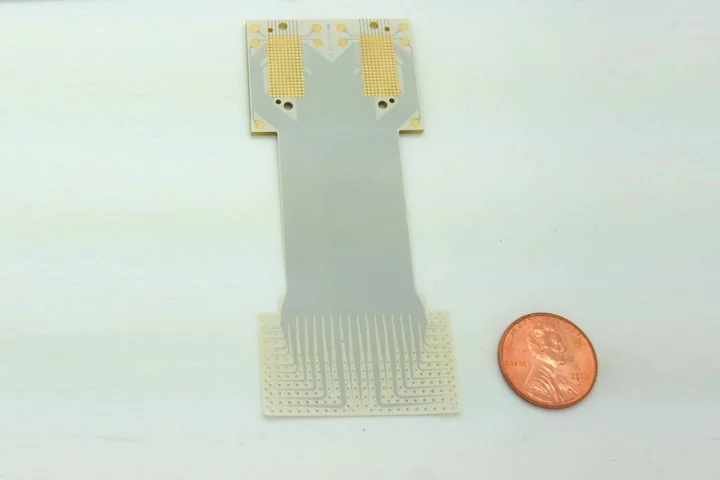
Scientists invent mind-reading device
Scientists have invented a brain implant that allows wearers to communicate using thoughts alone. The speech prosthetic – developed by neuroscientists, neurosurgeons and engineers at Duke University in the US – is able to translate brain signals into words. The researchers claim it is faster and less cumbersome than other brain computer interface and mind reading technologies, and could transform the lives of people suffering from neurological disorders. “There are many patients who suffer from debilitating motor disorders, like ALS or locked-in syndrome, that can impair their ability to speak,” said Gregory Cogan, a professor of neurology at Duke University’s School of Medicine. “But the current tools available to allow them to communicate are generally very slow and cumbersome.” The team was able to pack 256 specially designed microscopic brain sensors onto a postage stamp-sized piece of medical-grade plastic, which was tested on patients undergoing brain surgery for unrelated conditions like having a tumour removed. Participants were asked to listen to a series of nonsensical words like ‘kug’ and ‘vip’ and then speak them aloud. With just 90 seconds of spoken data, an AI algorithm was then used to decode the neural activity into words. The researchers now plan to develop the technology to improve its speed and make it wireless, and have received a $2.4 million grant from the National Institutes of Health to continue. “You’d be able to move around, and you wouldn’t have to be tied to an electrical outlet, which is really exciting,” Professor Cogan said. Duke Institute for Brain Sciences faculty member Jonathan Viventi added: “We’re at the point where it’s still much slower than natural speech, but you can see the trajectory where you might be able to get there.” The research was detailed in a study, titled ‘High-resolution neural recordings improve the accuracy of speech decoding’, published in the journal Nature Communications. Read More ChatGPT goes offline Urgent warning for Gmail users as millions of accounts set to be deleted Political ads on Instagram and Facebook can be deepfakes, Meta says
2023-11-09 00:57
You Might Like...

TikTok prankster Mizzy arrested ‘on suspicion of perverting course of justice’

Tampere – Finland’s Most Desirable City to Live in – Attracts Tech Talent From Europe
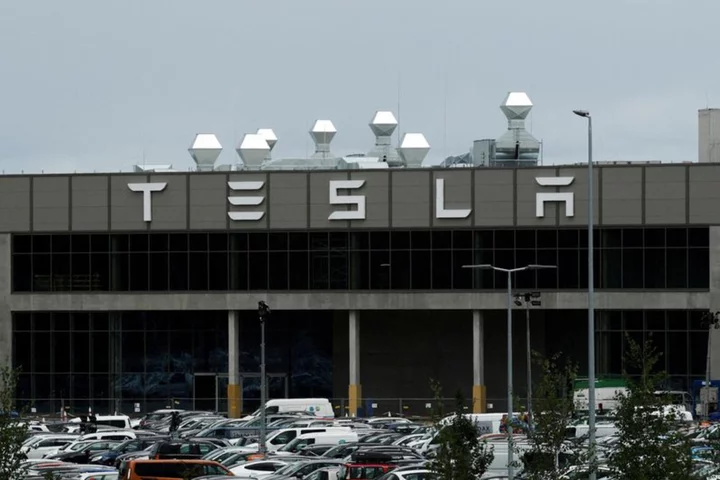
Macron to meet Elon Musk in Paris to talk Tesla investment

X to Get Rid of Ability to Block Accounts, Owner Elon Musk Says
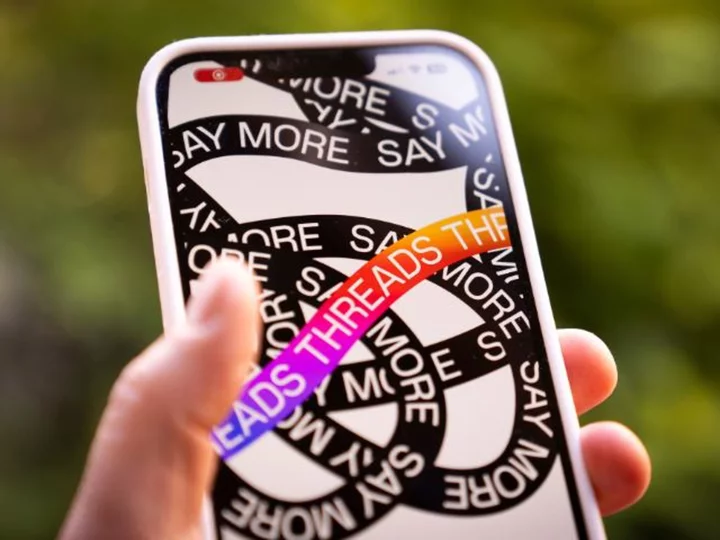
Meta's Threads app rolls out first big batch of updates

iQmetrix to Present on the Future of Telecom Retail at the 2023 Telecom Industry Address

China's 'father of EVs' urges cooperation on EV scaleup
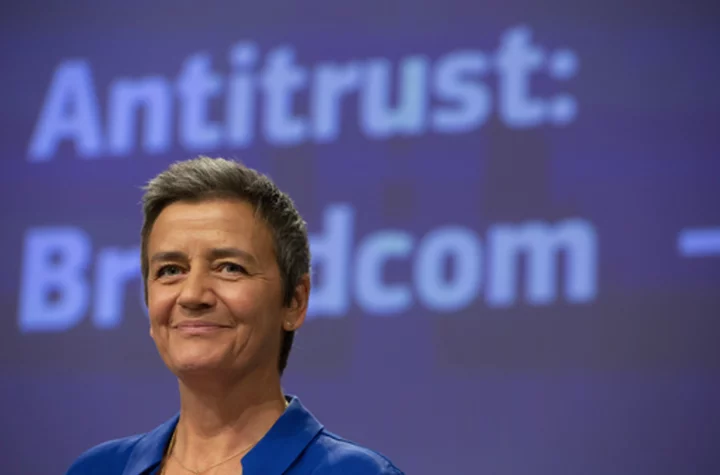
Broadcom's $61 billion deal to buy VMware gets cleared by European Union regulators
